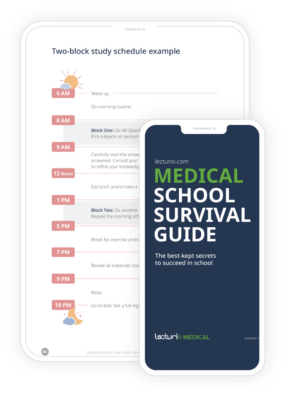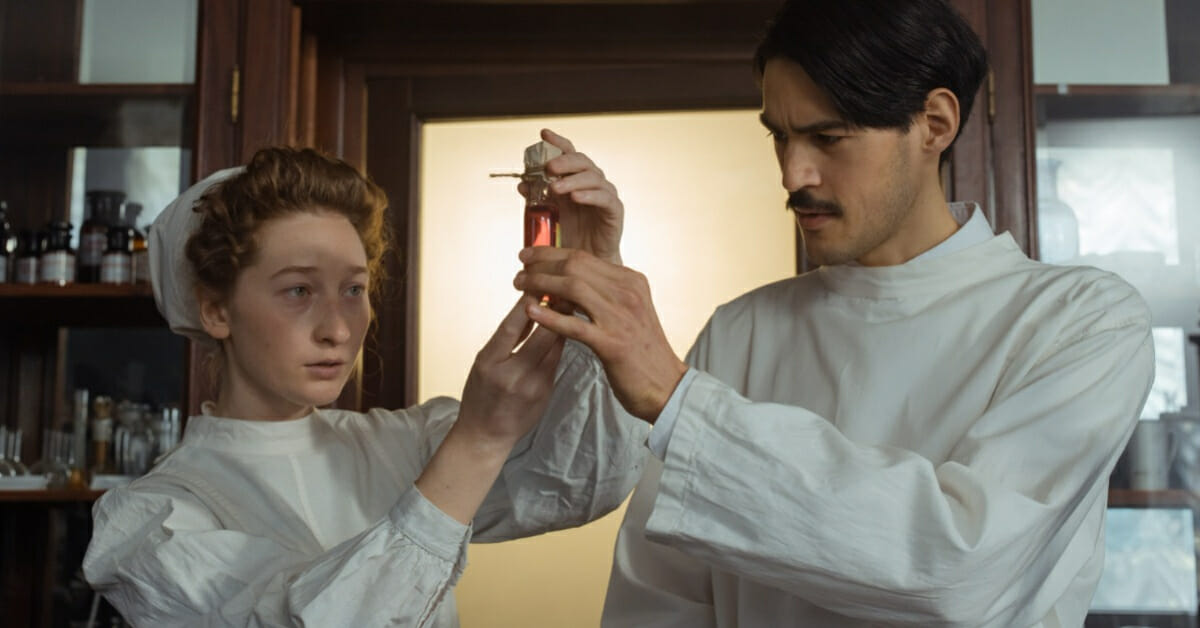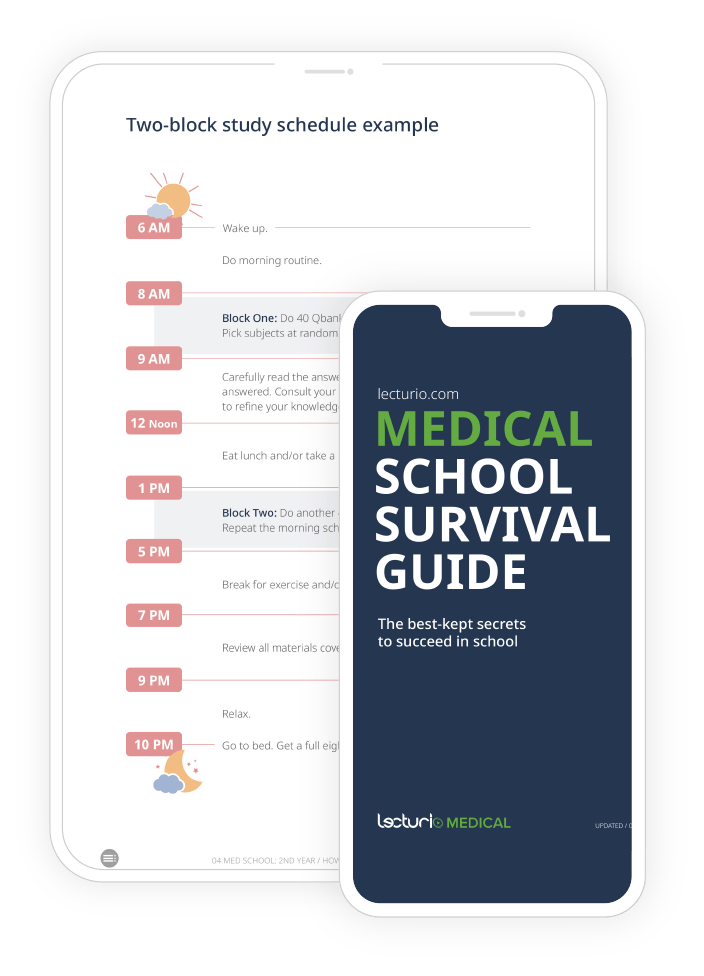Medical shows are the best. They give you a glimpse of our ordinary yet extraordinary lives in the hospital– without the effort and financial turmoil of being in the hospital. Honestly, one of the reasons why this field interests me so much is because a lot of things happen in medicine. In the hospital, emotions run rampant. While there are days where nothing really happens, there are also days that are full of drama.
The shows below are those that I find worth watching whether you’re a healthcare worker or a layperson. Although some are no longer on Netflix, I suggest you find a way (legally) to watch them, because I believe the stories here bring a lot of value and information for the viewers. Of course, none of them are 100% accurate nor are they for everyone. But all these shows definitely had me hooked for their own special reasons. So in no particular order, here are some binge-worthy shows you might want to check out.
#1 Scrubs
“Maybe the best thing to do is stop trying to figure out where you’re going and just enjoy where you’re at.” -J.D., Scrubs
I used to watch Scrubs because it always aired before the shows I actually wanted to watch. As I started my internship, I began watching it for some validation. Why? Because I find this show super relatable. Scrubs is about medical students surviving their rotations in Sacred Heart Hospital. That premise alone is enough fuel for tons of comedy with some drama mixed in.
If you’re looking to add some humor to the tense atmosphere of the medical field, I recommend you watch it. Despite being satire, it’s (loosely) based on real experiences of interns, both good and bad. J.D. is probably one of the most relatable characters I’ve seen in any show, making him a great narrator.
The other characters are just as memorable, and are basically caricatures of common stereotypes you see in the hospital. Unfortunately, you won’t find many patient perspectives in this show. Instead, it uses its air time to deepen the characters and their relationships with each other.
Some moments in the hospital can be downright awful, and the show portrays how humor is used to cope with those experiences. But it also knows when to become serious. When the show does get emotional, as someone who went through similar struggles in internship, it hits me really hard. So if you’re looking to laugh as much as cry, give this one a try.
#2 Hospital Playlist
“There’s only one thing we, doctors, can tell our patients with certainty, “We will do our best.” That’s the only thing.” -Ahn Jung-won, Hospital Playlist
If there’s anything the pandemic lockdown taught me, it’s the amazing writing in K-Dramas. This one in particular had me hooked from the first episode. Hospital Playlist is a Korean TV show about doctors who have been long-time friends, navigating the complexities of their jobs and relationships. Sure, doctors playing in a band sounds like a cool premise, but Hospital Playlist is a lot more than that.
While many medical dramas focus on the twists and turns of relationships between characters, I rarely see shows that humanize doctors the way they do in Hospital Playlist. We are taught to always keep a professional boundary between us and our patients. But it’s hard not to empathize with them.
Without empathy, we miss the whole point of true compassion– and therefore, the whole point of our job as doctors. In this show, you see doctors getting emotional in front of patients.
Here, you won’t find any villain scheming in the darkness. Instead, you have patients and their relatives coming to terms with illness, and doctors trying to balance their work with their personal lives. It makes for a compelling narrative. The problems the patients and doctors alike experience are so real and, at times, it pulls on my heartstrings. I would find myself pausing to process the scene. If you’re looking for a slice-of-life into the “normal” drama that goes on in the hospital, look no further than Hospital Playlist.
#3 The Good Doctor
“It’s sad. Neither one had the chance to become an adult. They should have become adults. They should have had children of their own and loved those children. And I want to make that possible for other people. And I want to make a lot of money so that I can have a television.” -Shaun Murphy, The Good Doctor
Being a doctor isn’t for everyone. But that doesn’t mean that you can’t do it if you put your heart and mind to it. In the Good Doctor, an American remake of a Korean TV show of the same name, Dr. Shaun Murphy is a surgery resident with autism spectrum disorder. Despite having ASD, Shaun’s character shows that what makes him different is also his greatest strength.
This show is great for people who don’t understand medical concepts well. It teaches you about the medical conditions as they come up. It uses visual aids and relatively simple explanations for even lay people to understand what’s going on.
I watched a few episodes of this show before I entered medical school, and I found it easy to understand despite my lack of a medical background. I highly recommend this show if you’re looking to understand medical concepts with wholesome drama on the side.
What I like most about this show is that it has a character that views the world differently from everyone else. I enjoy watching how both he and the other characters have to learn to adjust to each other. I love how he’s called the Good Doctor, not just because he’s smart and capable, but because he never compromises the well-being of his patients and co-workers. For me, it’s refreshing to watch it after working tiring hospital shifts where it’s easy to lose yourself.
#4 Chicago Med
“What’s the difference between God and a doctor? God knows he’s not a doctor.” -Dr. Zurney, Chicago Med
As many people may have guessed, life in the Emergency Department isn’t easy. It’s hectic, fast-paced, and someone somewhere is dying. Chicago Med tells the story of the many doctors and nurses in Gaffney Chicago Medical Center. It also crosses over with Chicago Fire and Chicago P.D. as it is the third installment of the Chicago franchise.
I would recommend you watch this show for the drama. It’s everywhere here. From patient interactions to the interpersonal relationships of the healthcare workers, the drama up to the max.
That isn’t to say that it’s bad. I actually enjoy the patient drama here in particular. While there are other medical shows that do the same things that Chicago Med offers, I was drawn to this show because it was more accurate and the drama was executed well. Even when the show threw these poor characters into tragic backstories and even more tragic plotlines for the sake of drama, I still ate it up.
Another thing I like about this show is that it emphasizes the role of nurses and other hospital staff. These people are the lifeblood of the hospital, and I rarely see TV shows really show it. Even one of the main characters is a hospital administrator. Seeing all these roles work on patients is interesting and refreshing. So, if you want some classic medical drama done well, Chicago Med is one you should check out.
#5 House, M.D.
“Our bodies break down, sometimes when we’re 90, sometimes before we’re even born, but it always happens and there’s never any dignity in it. I don’t care if you can walk, see, wipe your own ass. It’s always ugly. Always. You can live with dignity, we can’t die with it.” -Gregory House, House, M.D.
This is the show that made me want to become a doctor. Unfortunately, I was too young to realize that I shouldn’t make those decisions based on shows– no matter how good they are. House M.D. is centered on its titular character Gregory House and his team of diagnosticians. They treat patients who come in with pretty normal chief complaints. However, the initial diagnosis is usually wrong and it’s Dr. House who arrives at the correct one in the end. Most episodes follow this formula, but that doesn’t make it any less interesting. If anything, it’s pretty standard for a mystery show.
The show is a play on Sherlock Holmes who– similar to Dr. House– comes to his conclusions through inductive reasoning, unconventional methods, and almost superhuman perception.
What I love most about Dr. House is that while he is an arrogant jerk, he is wrong quite often. So when he does get his initial impression wrong, he does what he can to better understand the patient’s condition. Even though it’s because of his obsession to be right more than actual care for the patient, it’s fascinating to watch him solve problems that others can’t.
Of course, there’s drama between the characters who grow throughout the seasons of the show. But I also find that the patient stories are where the show shines, especially putting into perspective that the main character is a patient himself. I may be speaking with some bias, as this is definitely my favorite medical drama, but it’s the only show I find myself coming back to, even now as a doctor. I find it to be a fun and educational watch, even for people who have no knowledge of medicine. It’s a great TV show, and I highly recommend it.
A Word On Medical Shows
There are no perfect medical shows. Some of these shows have their bad and good episodes. Some shows can even decline in quality over time. So I won’t promise that these shows will be all good, all the time. But one way or another, these shows entertained me and have even made me feel genuine care for these fictional characters. If these shows don’t do it for you, there are a ton of others out there to check out.
I must say this, though: take the medical procedures you see on TV with a grain of salt. Not all of them are accurate, and not all of them apply to every case. All medical procedures must be tailored to each patient. Sometimes, even with good medical consultants on board, shows can get procedures wrong or even overly dramatize them for views. Remember to always do your research before drawing conclusions from the things you see on any media. While these shows are meant to raise awareness of medical conditions and issues in the healthcare system, that awareness must come with the responsibility of searching for more information about the truth.







